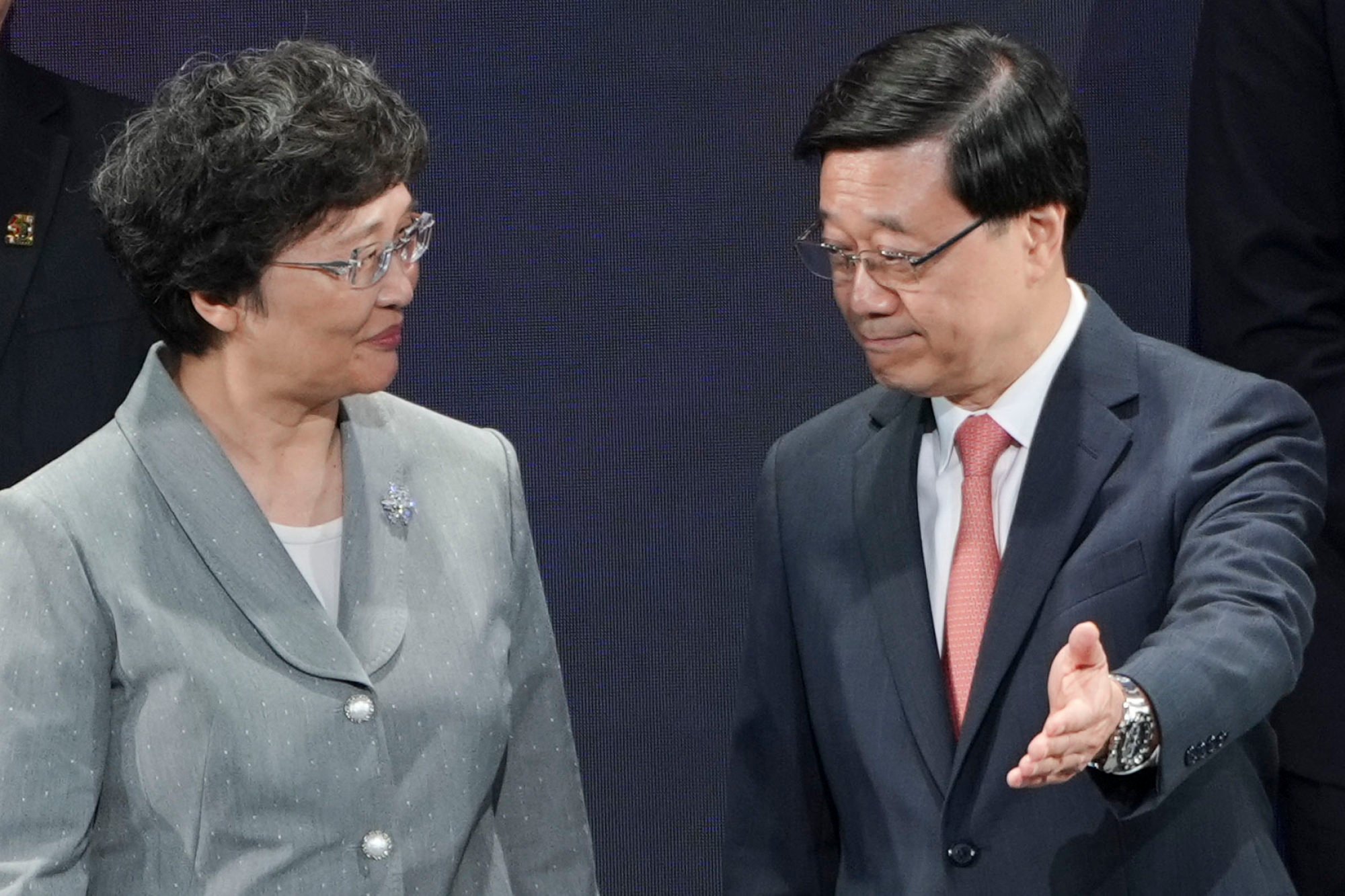
Beijing to help Hong Kong rake in talent from mainland China and overseas, nation’s labour chief says
- Wang Xiaoping, country’s labour minister, says Beijing will also support drive for Hong Kong to become a more entrepreneur-friendly environment
- Hong Kong labour chief also vows to expand talent trawl to Europe and Southeast Asia, after noting most incoming professionals are from mainland
Wang Xiaoping, the country’s human resources and social security minister, made the pledge at Hong Kong’s two-day Global Talent Summit on Tuesday as the city’s labour chief said local authorities would focus on attracting more professionals from Southeast Asia and Europe.
Wang reiterated the country’s support for Hong Kong’s efforts to become an international talent hub, as well as its drive to become a more entrepreneur-friendly environment.
“China today has become fertile ground for talent from all walks of life, while Hong Kong has ushered in the best period for fostering the economy and development,” she said. “We are willing to work with the Hong Kong government … to build a stronger talent foundation.
“We look forward to talent from all walks of life at home and abroad … exploring opportunities in China, especially in Hong Kong. They can make full use of opportunities produced by the country’s high-quality development and Hong Kong’s prosperity and stability to realise their dreams.”
Wang’s ministry falls under the purview of the State Council. It oversees national labour policy standards and manages the country’s social security system.
The bay area refers to Beijing’s ambitious initiative to transform Hong Kong, Macau and nine mainland cities into an integrated hi-tech, economic powerhouse by 2035.

Hong Kong’s labour force shrank by 140,000 from 2020 to 2022. Census data showed that the population rose 0.4 per cent to 7.5 million at the end of 2023 over the previous year, with a report attributing the increase to the admission of mainlanders through various talent schemes.
He also said that more than 120,000 people had arrived in Hong Kong so far this year under various initiatives.
Among them, 47,000 arrived under the Top Talent Pass Scheme. The Post reported last month that 95 per cent of those approved were from the mainland.
Secretary for Labour and Welfare Chris Sun Yuk-han said the government would step up efforts to seek talent from other parts of the world.
“We are very sure that once we have let them know all the growth prospects and all the very exciting opportunities here in Hong Kong, a lot of talent in Southeast Asia as well as Europe will be thinking about Hong Kong and they will really give Hong Kong a good shot,” he said.
The high-level summit is being held at the Convention and Exhibition Centre in Wan Chai alongside the CareerConnect Expo, which provides information on accommodation, bank services and job searches.
But attendees said the target audience and position of the expo was unclear. Among those who said they felt disappointed were university students Jack Li, 19, and Kevin Long, 20, who came from Guangzhou. The two chemistry students said they were eyeing jobs in scientific research and development.
“It’s neither a job fair nor an industry presentation … Information [provided by exhibitors] was all a little vague,” Li said.
Long added: “The layout of the expo was not obvious and the range of exhibitors isn’t very comprehensive. Most booths here are related to property, IT, and finance, and are irrelevant to what we do.”
A 22-year-old unemployed professional in the data analysis and digital transformation sector visited the expo looking for job opportunities.
She said she completed her undergraduate studies at the University of Hong Kong and worked at a start-up for a year before she was laid off when it downsized.
The Indian woman said information in English was limited at the expo and was mostly in Chinese, and there were not a lot of options for those who only spoke English.
“Most of the companies were looking for you to fill in their survey for the talent pool and database. But I have already done that when applying [for jobs] at home,” she said.
“I was looking for more personal communication with the companies or recruiters rather than just filling in forms.”


